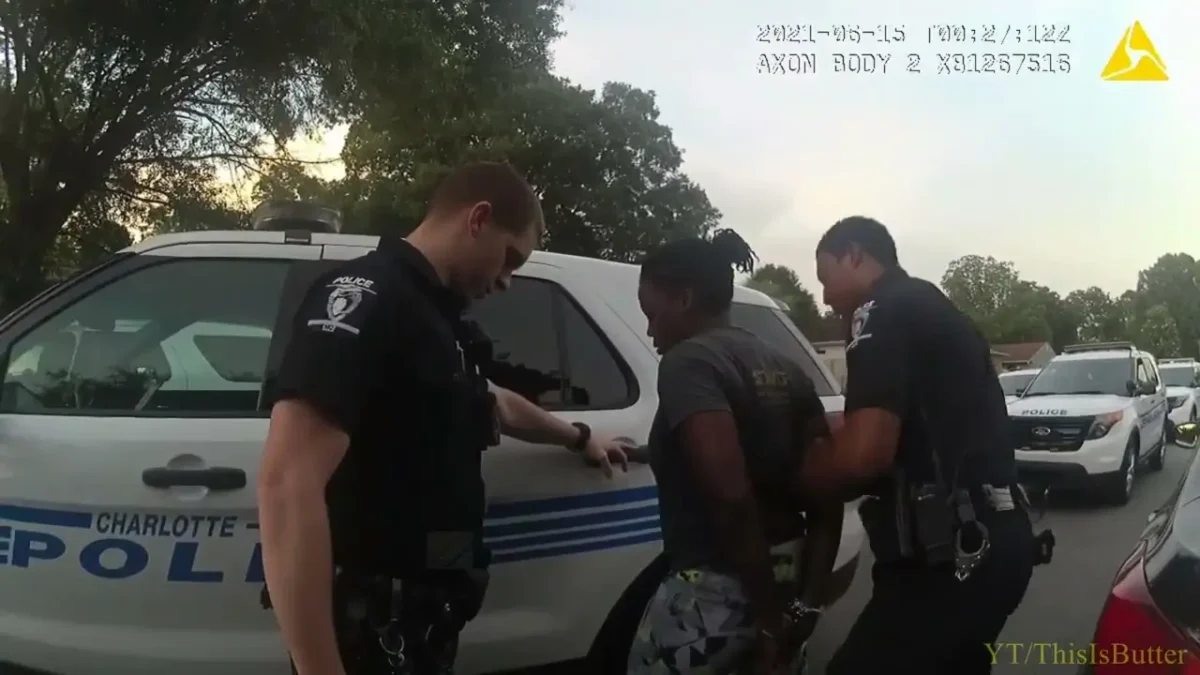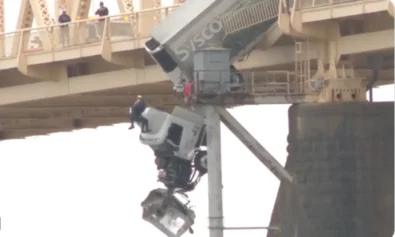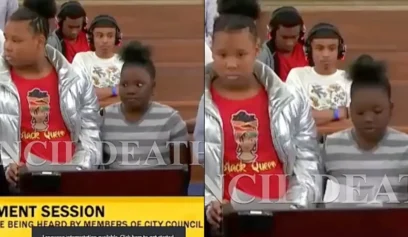On June 14, 2021, Jasmine Horne was sitting in her car parked in front of her grandmother’s home in Charlotte, North Carolina, after returning from a workout.
As soon as the second-grade teacher got out, she saw 10 police cars surrounding her. A cop has his gun drawn and pointed at Horne while demanding she put her hands up, a video posted by WCNC shows.
Clueless as to what she’s done, police cuff her and place her in the back of a police vehicle without asking for her license or registration. Moments later, they ask if she knows a Jaselyn Horne, the attempted murder suspect they were looking for. She doesn’t.
It didn’t take long for police to put two and two together and realize they arrested the wrong person. About 15 minutes after they wrongfully detained Horne, they released her and sent her off with a simple apology.
“At that point, the damage was done, and I was already traumatized,” Horne later recalled to local news outlets. “I really thought (my grandmother) was going to outlive me. It was the worst day of my life.”

Numerous incidents similar to Horne’s routinely take place on account of errors associated with automatic license plate readers. These glitches often set the stage for botched traffic stops that lead to traumatic and violent encounters with law enforcement for many Black motorists.
Some states have started crafting legislation to impose restrictions on automatic license plate readers, specifically to strengthen data privacy. South Carolina lawmakers reintroduced a bill that would restrict access to the database where photos of plates and information are stored and limit how long that data is archived.
In Missouri, a bill was drafted that would prevent state agencies and local governments from using their purchased ALPRs to capture data from vehicles on public roadways.
While Horne’s case was one associated with mistaken identity, it’s still just as damaging.
Authorities tracked Horne’s car because witnesses at the scene of the attempted murder identified the suspect as “Jasmine Horne” rather than “Jaselyn Horne.” So, officers entered registration information under the teacher’s name into a license plate reader.
Horne immediately filed an official complaint with the Charlotte-Mecklenburg Police Department’s internal affairs bureau. CMPD launched an internal investigation and exonerated the officers involved, stating they acted in “good faith.” None of the officers were disciplined, a move the Citizens Review Board rebuked in a later vote.
The board submitted numerous recommendations to CMPD after Horne’s wrongful detention. In a report, committee members called for police to ensure positive identification of the accused before entering details into a license plate recognition system and verify entries from license plate readers more frequently. The city later settled with Horne for $10,000.
Horne said she suffered severe mental and emotional post-traumatic stress in the aftermath of the event. Last year, she quit her teaching position in Charlotte and moved to Thailand to work as an English instructor.
“As a woman of color in the United States, there’s sometimes this ‘hum’ of not feeling safe. It’s like a shadow that follows you that you forget about. But things try to remind you of it,” Horne told The News & Observer. “That incident definitely reminded me of it.”
Horne’s traumatic run-in with police bears similarities to Brandon Upchurch’s encounter in Toledo, Ohio.
Last month, Upchurch was driving his cousin home from work in his pickup truck when several police vehicles pulled him over. Cops exited their vehicles with their guns drawn. Upchurch got out of his car and started asking what he’d done, but the cops were only yelling orders for him to get down on the ground.
After he stepped on the curb, Upchurch started kneeling to comply with orders when an officer released a K-9 unit on him. That officer later wrote in a report that he released the K-9 because he believed Upchurch posed a risk to officer safety and was unsure if he was armed.
That ordeal was the result of a license plate reader error that mistook Upchurch’s plate for a stolen plate officers were investigating.
“They instantly came out with the guns drawn. They did not come to my car and ask me for license, insurance, etc., anything,” Upchurch said, according to ABC News. “This is uncalled for over a stolen tag. All they had to do was run the plates again and found out it wasn’t stolen.”


